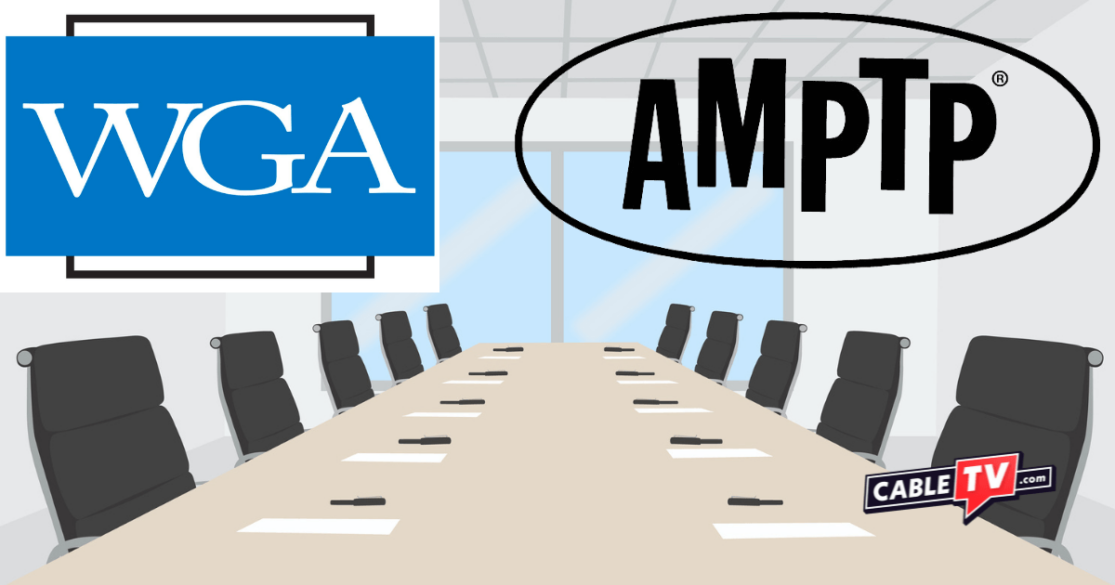Studios Back at the Table With Writers: What This Means for TV Fans

As the writers’ strike reaches its 95th day, Guild leadership is meeting with studios to potentially resume contract negotiations and resume TV and film productions worldwide.
Almost 100 productions have shut down, and the fall broadcast schedule relies heavily on unscripted content for the first time in over a decade.
Looking for the hottest entertainment?
Subscribe to our email newsletter to get the latest TV premieres, entertaining takes, and money-saving promotions.
By signing up, you agree to our Privacy Policy & Terms and Conditions.
In a short note to members on Tuesday, August 1, the Writers Guild of America (WGA) announced that the Alliance of Motion Picture and Television Producers (AMPTP), representing the major Hollywood studios, contacted the guild to discuss negotiations.
However, the WGA noted in a second note to members that throughout this year’s strike, “the AMPTP has run its tired anti-union playbook straight out of the 2007/08 strike.” The union calls on the AMPTP to meet on Friday “willing to make a fair deal and begin to repair the damage your strikes and your business practices have caused the workers in this industry.”
The AMPTP and WGA have been at a standstill since the guild went on strike on May 2, 2023.
Do the negotiations mean the strike is over?
No. Writers (and actors) are still on strike and picketing major studios and productions in the U.S. In fact, Friday saw thousands of WGA and SAG-AFTRA members picket at Universal Studios in Los Angeles—the largest demonstration so far.
The prospect of negotiations restarting is a good sign that studios recognize the impact of the strikes and want to help the industry recover. The WGA has been open about its willingness to meet with the AMPTP from the day the union went on strike.
If the guild and studios reach a deal, the membership will vote on the agreement, the strike will be over, and writing can begin on TV and film productions. However, studios need to strike a deal with the actors’ union for TV shows and films to resume production fully.
What is the writers’ and actors’ strike about?
The WGA strike began when the studios rejected or countered every proposal the WGA made in the negotiating room. “Writers are asking for a contract that includes fair pay that reflects the value of [writers’] contribution to [the studio’s] success.”
Streaming residuals and artificial intelligence are a major sticking point for the WGA and its sister union SAG-AFTRA (representing actors, who are also on strike).
To understand what the strikes are all about, check out the guide from CableTV.com’s Eric Chiu.
How does the strike affect my TV viewing?
As a result of the WGA strike, and as we reported back in May, the strike’s impact will vary depending on your TV consumption. Unscripted content (including game shows and reality TV) is virtually unaffected, while late-night talk shows went dark immediately. Some scripted programming was already written and ready to go—although many of those productions have shut down due to the SAG-AFTRA strike.
Other shows and movies are written and filmed beforehand, so they will be released as scheduled. However, TV staples like NCIS, Abbott Elementary, Law & Order: SVU, FBI, Young Sheldon, and Yellowstone will not be returning to our screens any time soon. Meanwhile, we’re also seeing film studios begin to delay fall movies.
Watching movies and TV shows during the strike is okay, but if you want more information, we put together a guide to help.

